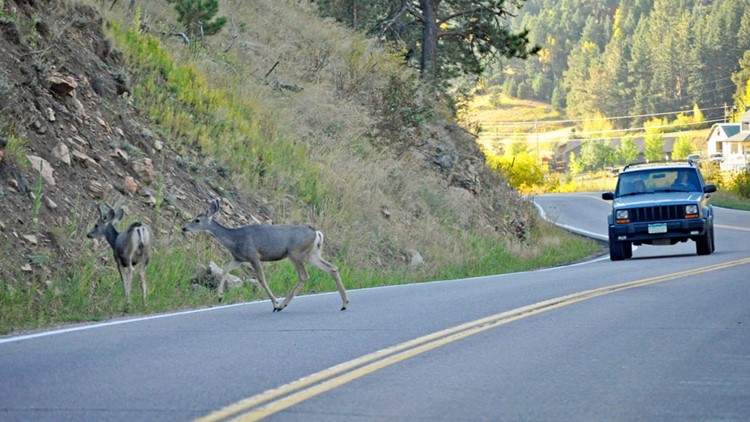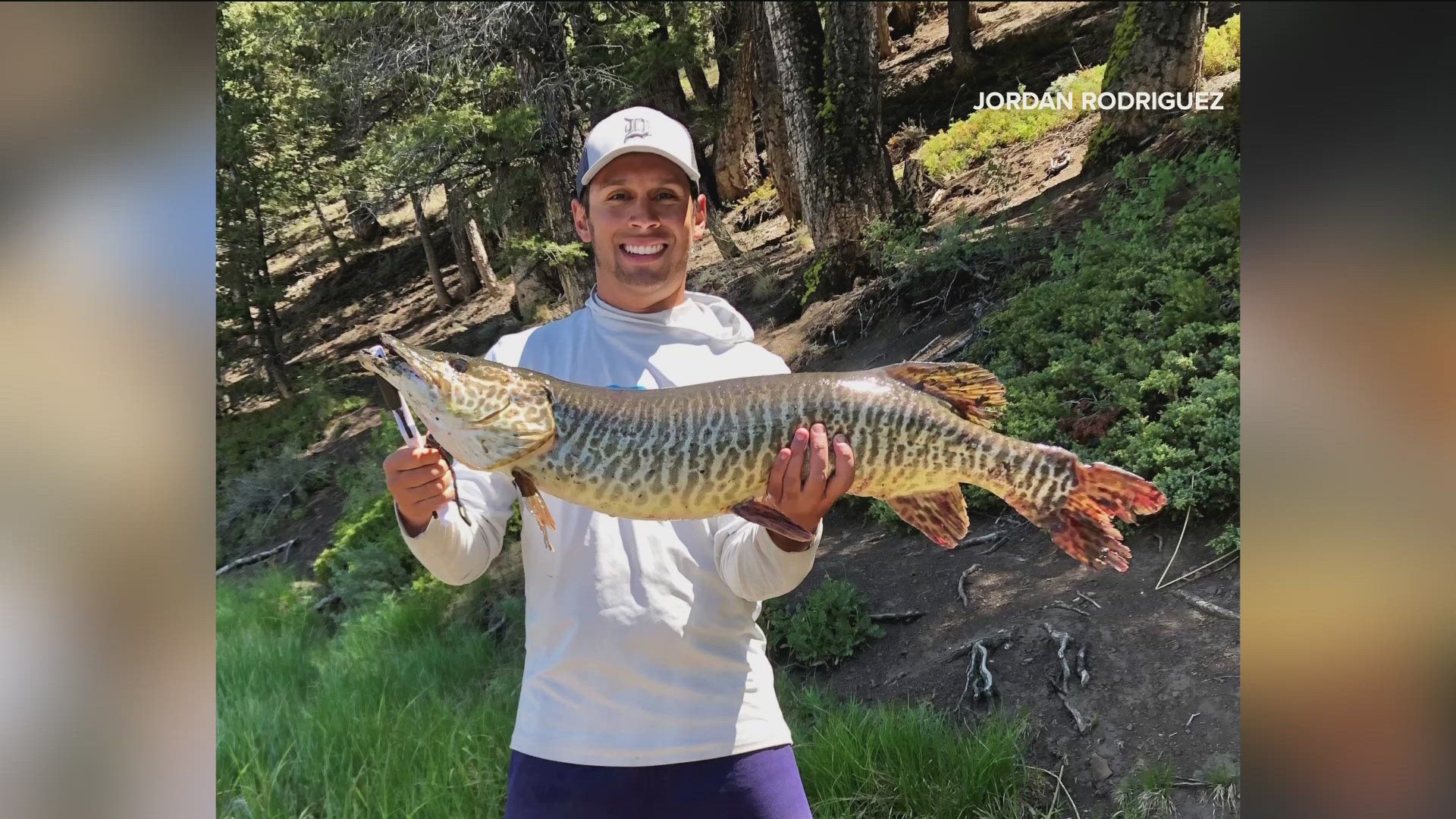BOISE, Idaho — The Idaho Department of Fish and Game is warning motorists to be on the lookout for wildlife on our roads.
With big game animals on the move for mating and migration, wildlife-vehicle collisions tend to peak this time of year. Drivers are urged to slow down and be extra careful.
Officials say the deer mating season occurs in November, and they tend to be active all day and become inattentive at times. With increased snow in the higher elevations, Idaho’s big game herds are migrating to lower elevation winter ranges, crossing highways and roads.
“While you can’t predict when wildlife will cross the road, being extra alert, slowing down, and avoiding driving under low light conditions if possible is your best defense,” said Greg Painter, Idaho Fish and Game wildlife manager based in Salmon.
Hitting a deer or an elk with a vehicle often results in thousands of dollars in damages.
Here are some tips from Fish and Game to reduce your chances of an animal collision:
Slow down. Driving more slowly increases reaction time and reduces the chance of a collision.
Buckle up. This won't prevent a collision, but it can save your life depending upon the severity of the accident.
Scan ahead. Watch for movement, especially near the fog line and side of the road. When driving at night, watch for shining eyes in headlights.
Dawn and dusk. Big-game animals are especially active at dawn, dusk and at night. Motorists should drive extra cautious during these times.
More to follow. Where there’s one, there’s usually more. If you see one animal cross the road, slow down immediately and expect others to follow.
Break, don't swerve. Try to brake as much as possible and stay on the roadway. The most serious crashes occur when drivers lose control of their vehicles trying to avoid an animal. It is usually safer to strike the animal than another object such as a tree or another vehicle.
Warning signs. Pay extra attention in areas posted with wildlife crossing signs. They are there for good reason.
Bright lights. Using high beams can help you spot wildlife, but be considerate of other drivers when using them.
Don’t tailgate. Always keep a safe distance between you and the car in front of you to avoid any unnecessary accidents. If that driver brakes suddenly for an animal in the road, you won’t be able to react in enough time.
Motorists should report any collision to police dispatch by calling 911.
Drivers who come across a dead animal on the side of the road are encouraged to report the roadkill on Idaho Fish and Game’s website.



